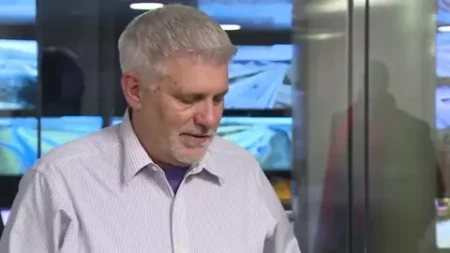A far-right Israeli minister sparked national and international backlash on Thursday after stating that Israel has no duty to relieve hunger in the Gaza Strip. His comments came as the humanitarian crisis worsens in the territory, where starvation is rising.
Amichay Eliyahu, head of Israel’s Heritage Ministry, said in a radio interview that “there is no nation that feeds its enemies.” He compared the situation to historic wartime scenarios, referencing how Britain and the U.S. treated Axis powers during World War II. “The British didn’t feed the Nazis,” he claimed, adding that “the Russians don’t feed the Ukrainians now.”
Eliyahu also suggested that Israel is aiming for Gaza to be “wiped out” and called for the expulsion of its population, whom he accused of supporting antisemitic ideology. The remarks were made during an interview with Kol Barama, a station popular with ultra-Orthodox Jewish audiences.
Though he holds no power over military decisions, Eliyahu’s statements have triggered concern about the tone of Israel’s leadership. His ministry oversees historical and archaeological institutions, and he is not part of the security cabinet.
The office of Prime Minister Benjamin Netanyahu declined to immediately respond. Hours later, the Israeli Embassy in Washington distanced the government from Eliyahu’s remarks, stating they “do not reflect the policy of Prime Minister Netanyahu and his government.” The statement emphasized Israel’s efforts to supply aid to Gaza “with determination and commitment.”
Still, the damage had been done. Critics warned that such rhetoric harms Israel’s standing in the international community. Yair Lapid, leader of the political opposition, condemned the comments as “a moral stain and a public diplomacy disaster.”
“Israel will never convince the world of the justness of our war against terror as long as we are led by an extremist minority government with ministers who glorify blood and death,” Lapid said.
The remarks come as Gaza faces deepening hunger. From March to May, Israel completely blocked food deliveries into the enclave. Although some aid now enters, Israel has restricted distribution points, making food access nearly impossible for many Palestinians.
Humanitarian organizations report that people are forced to choose between starving and risking death to collect food. Israeli forces have allegedly opened fire along access routes to aid distribution areas, killing scores of civilians.
Initially, Eliyahu dismissed reports of starvation. But on Thursday, he acknowledged the crisis, shifting blame to Hamas. “We are starving them? They are starving them!” he said, adding that hunger in Gaza would end only when all hostages are released.
Public pressure continues to grow in Israel. Protests were expected Thursday evening in Tel Aviv, demanding a cease-fire and the safe return of hostages held by Hamas. Polls show a majority of Israelis now support a diplomatic solution over continued military action.
This is not the first time Eliyahu has sparked controversy. Early in the war, he publicly suggested that Israel consider using a nuclear bomb on Gaza. Netanyahu temporarily suspended him from the cabinet, but later reinstated him.
Observers warn that such statements not only undermine humanitarian norms but also isolate Israel diplomatically at a time when it faces scrutiny over its actions in Gaza. The Gaza starvation crisis has drawn international concern, and the latest comments only intensify pressure on the Israeli government to act more responsibly.







